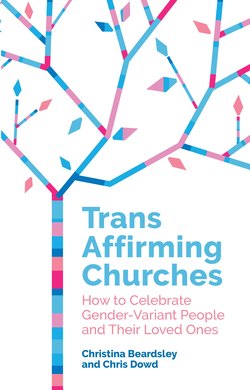Читать книгу Trans Affirming Churches - Chris Dowd - Страница 18
На сайте Литреса книга снята с продажи.
Meet Jason:
ОглавлениеHi, I’m Jason. I’ve always been willing to talk about myself to other Christians, in the hope that they’d gain a better understanding of what it’s like to be trans, though, to be honest, I’m less inclined to explain myself these days. Hormones and top surgery have changed my body and I prefer to get on with life as a man rather than always being the token trans person. I’m not in total stealth [meaning, fully assimilated as one’s gender and not inclined to declare that one has transitioned], and will sometimes ‘out’ myself to discuss my journey, especially with fellow Christians, as some seem to be so prejudiced against us. That’s why I’m happy for Tina and Chris to quote me in their book. I’ve had a Christian upbringing, and my parents are very involved in church life, so I know it inside out and believe I have a calling to ministry. Although I was brought up as a girl, I’ve always been very self-aware: I was the proverbial tomboy and confident that transition was the right step for me. Thankfully my parents have been fully supportive. As a student, my life was pretty full with study and worship, and being trans hasn’t been such a big deal to me as it might be for older trans people. Discernment for ministry became interesting when I was told that trans candidates need to have ‘completed’ transition before they can be recommended for training. In fact, this is not in the Church of England’s official guidance about transgender candidates and turned out to be false. Presumably it was based on the mistaken equation of transition with surgery. I’ve noticed that non-trans people often seem to focus on trans people’s surgeries as if that’s what transition is mainly about.
For example, some Christian friends wondered – and even used to ask me – if I’ve ‘mutilated’ my body. Even though I’d shared my own self-understanding with them, comments like that suggested they hadn’t grasped that my transition was actually about wholeness.
Jason resembles other people quoted in this book. All are prepared to tell their stories so that others can gain insight into their experience. Maybe there’s a ‘Jason’ in your congregation. Someone who transitioned in the past and is happily living out their gender identity. No one else is going to know unless they choose to tell them.
As Jason explained, having a trans history is no longer an issue for him. His loving Christian upbringing gave him the stability to accept himself. Which is just as well, because some Christian friends have tended to say things or ask questions that would probably make them flinch if put to them. Questioning can promote understanding, and no one wants to shut down dialogue, but the language we use – e.g. ‘mutilation’ – could be hurtful for the trans person. Helping one another to be and become the person God has made us should be our aim.
Jason’s stability helped him to come to terms with these kinds of comments, but when he tried to enter the discernment process for ministry it appeared that trans people were perceived as a problem, especially during transition. Guidance grounded in evidence and good practice is the ideal. The requirement that Jason encountered, which was not official policy, appeared to assume that transition was inherently destabilising, rather than increasing the trans person’s wellbeing. The church official concerned appeared to lack insight into trans people’s experience.
Learning points from Jason’s story
• Some people with a transgender history may not want to talk about their past and you may be unaware of it unless they tell you.
• With more information and role models than in the past, younger trans people may find it easier to come out and address their gender identity (though see Debbie’s story below and the section on role models in Chapter 6).
• Even so, not everyone has a stable home and unconditional parental love, so you may need to give support and reassurance.
• Think carefully about the words you will use and ensure that they are sensitively expressed: avoid questions that would make you feel uncomfortable if asked of you.
• Trans people in the Church often encounter institutional barriers. Making the Church inclusive of trans people means working to remove them.
